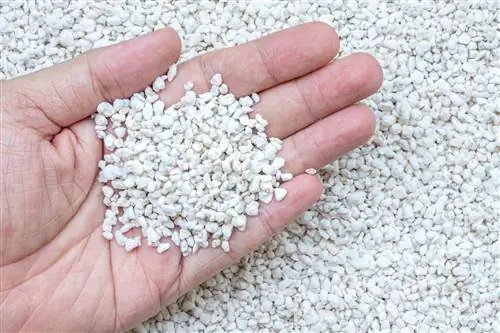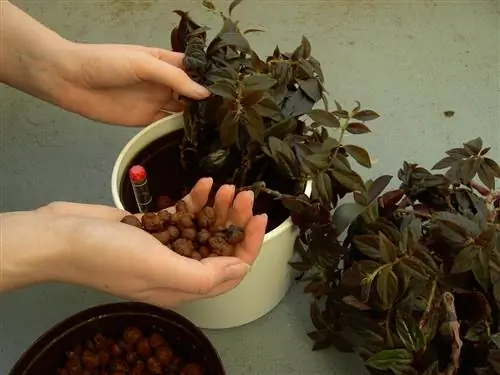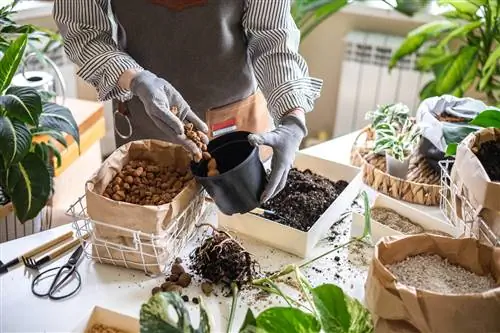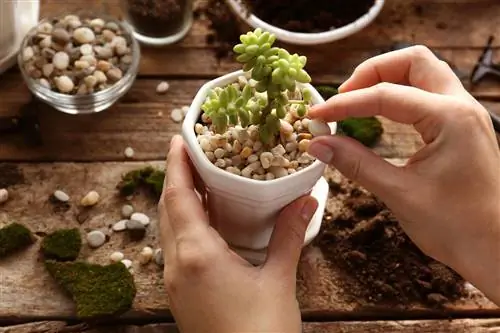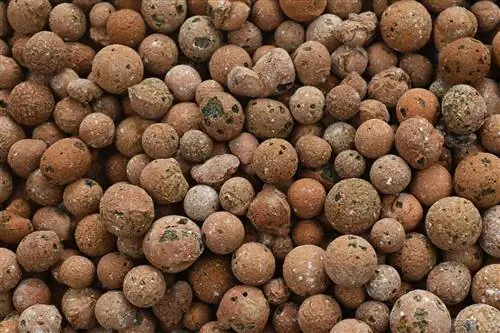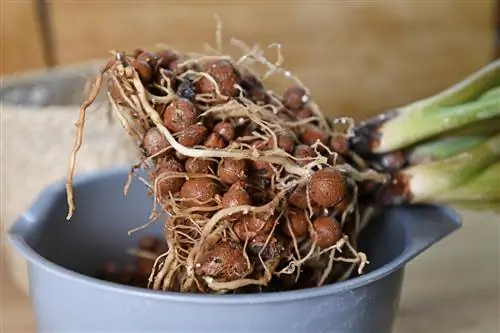- Author admin leonars@hobbygardeners.com.
- Public 2023-12-16 16:46.
- Last modified 2025-06-01 06:02.
Perlite and clay granules are often used for drainage under the potting soil. Although the two materials have several similarities, there are also key differences. Accordingly, the two additives are sometimes recommended for different purposes.
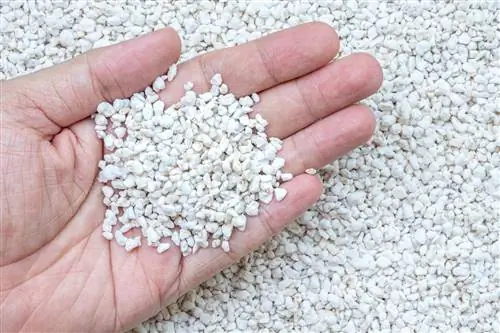
Perlite or clay granules - what do I use for what?
You can use both perlite and clay granules asdrainage materials. Since perlite stores water well, unlike clay granules, you should use the volcanic glass for thirsty plants. Clay granules allow excess water to drain away quickly, which particularly benefits moisture-sensitive plants.
What do perlite and clay granules have in common?
Perlite and clay granules areuseful additivesthat you can use in a variety of ways for garden and house plants in pots. The natural raw materials - one clay, one volcanic glass - are produced in a relativelysimilar way, more precisely they are heated at around 1000 degrees so that the small parts puff up.
Note: Perlite and clay granules often raise the pH value in the water and substrate. That's why it's important to keep an eye on the changes and intervene if necessary.
What is the difference between perlite and clay granules?
Perlite and clay granules can be easily distinguished from each othercolor. While puffed perlite is white and looks almost like popcorn, clay granules are brownish in color.
The most important difference, however, concerns the ability to storewater. Perlite can do this very well. Clay granules, on the other hand, absorb water for a short time, but do not store it, but rather release it quickly.
For which applications are perlite and clay granules recommended?
Apart fromDrainage, for which both are well suited, perlite and clay granules are recommended for different purposes:
- Perlite e.g. for loosening clayey soils and keeping the soil moist for longer
- Clay granules e.g. in hydroponics
By the way: clay granules are the same as expanded clay.
Tip
Perlite is usually cheaper than clay granules
Assuming that you only want to use both perlite and clay granules of the best quality, products with volcanic glass are generally cheaper. But: If your plants require little water, drainage with clay granules makes more sense.

